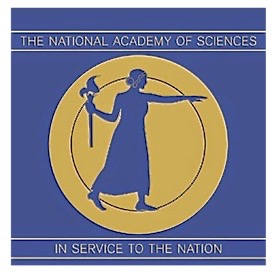
New NAS members (from left to right) Roger Falcone, Pamela Ronald, Uros Seljack, and Omar Yaghi. (Credit: Berkeley Lab/UC Berkeley)
Four Lawrence Berkeley National Laboratory (Berkeley Lab) scientists have been elected into the National Academy of Sciences (NAS) in recognition of their distinguished and continuing achievements in original research. Roger Falcone, Pamela Ronald, Uros Seljak, and Omar Yaghi, join 100 scientists and engineers from the U.S. and 25 from across the world as new lifelong members and foreign associates.
All new NAS members and foreign associates are nominated by existing NAS members for outstanding contributions to their field. Only 100 or fewer researchers make it through the selection process each year. The four new members bring the number of Berkeley Lab scientists elected as NAS members to 84.
On top of being one of the highest honors a scientist or engineer can receive, membership to NAS also provides a platform for advocacy and leadership. Since its creation in 1863, NAS has served as a nonpartisan, nonprofit institution that offers science, engineering, and health policy advice to the federal government and other organizations.
“It is a great honor for a scientist to be elected to the National Academy, and it is great for the Lab to have this group of distinguished scientists so honored,” said Berkeley Lab director Mike Witherell. “We are proud that the excellence and impact of our researchers’ work continues to be recognized in this way.”
Roger Falcone is the former director of the Advanced Light Source user facility at Berkeley Lab and Professor Emeritus and Professor of the Graduate School in UC Berkeley’s department of physics. His research explores the behavior of solids and plasmas under conditions of extreme temperature and pressure to answer fundamental questions about matter, and to advance our understanding of planetary processes and of materials science for energy and industrial applications. Falcone is currently serving as the past president of the American Physical Society; in this role he advocates for government science policies and funding for research and education.
Pamela Ronald is a faculty scientist in Berkeley Lab’s Environmental Genomics and Systems Biology division within the Biosciences Area, and a scientific lead, plant pathology, at the Joint BioEnergy Institute – a Department of Energy bioenergy research center led by Berkeley Lab dedicated to developing advanced biofuels. She is also a distinguished professor in the College of Agricultural and Environmental Sciences at UC Davis. Her research focuses on plant genes that control resistance to disease and tolerance to environmental stressors, with the goal of using genetic engineering to improve food security for the world’s poorest farmers.
Uros Seljack is a senior faculty scientist in Berkeley Lab’s physics division, a professor of physics and astronomy at UC Berkeley, and the co-director of the Berkeley Center for Cosmological Physics. A theoretical cosmologist, Seljak specializes in studying the large-scale structure of the universe. His current research involves the development of analytical and numerical models of galaxy clustering; fluctuations in the universe’s oldest light, known as the cosmic microwave background (CMB) radiation; and the density, distribution, and temperature of dark matter using both space-based and ground-based instruments and supercomputer-driven large simulations.
Omar Yaghi is a senior faculty scientist in Berkeley Lab’s Materials Sciences Division, a former Director of the Molecular Foundry user facility at Berkeley Lab, a professor of chemistry at UC Berkeley, and the co-director of the Kavli Energy NanoSciences Institute. His multi-affiliation research group has pioneered the development of metal-organic frameworks (MOFs): synthetic, porous materials that are created by binding individual metal atoms or clusters and organic molecules in repeating patterns in order to form a crystal lattice. Due to their customizable gas and particle-absorbing properties, MOFs and other similar framework materials being developed by the Yaghi lab could be the enable a number of exciting new technologies, including devices that capture and store greenhouse gases, next-generation batteries and supercapacitors, and platforms for efficient water filtration and drug delivery.
# # #
Founded in 1931 on the belief that the biggest scientific challenges are best addressed by teams, Lawrence Berkeley National Laboratory and its scientists have been recognized with 13 Nobel Prizes. Today, Berkeley Lab researchers develop sustainable energy and environmental solutions, create useful new materials, advance the frontiers of computing, and probe the mysteries of life, matter, and the universe. Scientists from around the world rely on the Lab’s facilities for their own discovery science. Berkeley Lab is a multiprogram national laboratory, managed by the University of California for the U.S. Department of Energy’s Office of Science.
DOE’s Office of Science is the single largest supporter of basic research in the physical sciences in the United States, and is working to address some of the most pressing challenges of our time. For more information, please visit science.energy.gov.
